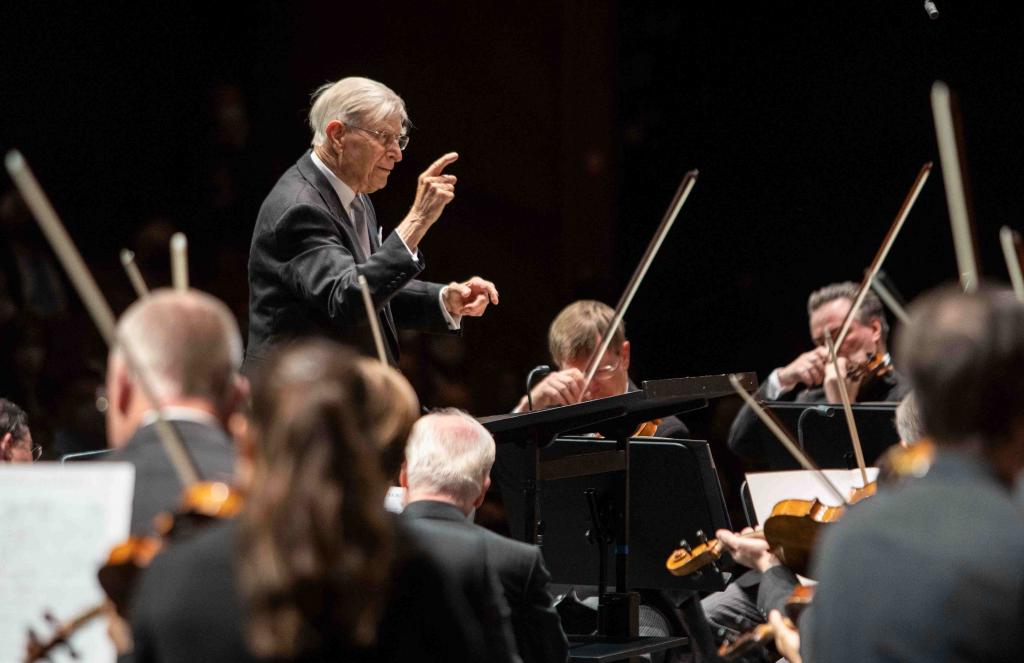Thessaloniki gets ready for its metro launch in November
The underground rapid transit lines have been under construction for almost two decades due to various project delays
 TheMayor.EU logo
TheMayor.EU logo 
The Vienna Philharmonic, conductor Herbert Blomstedt, Source: Marco Borrelli via the Salzburg Festival
The last 80 years of some of the best in theatre, classical music and opera have been preserved by the Austrian Media Library
Recordings of the last 80 years of the iconic Salzburg Festival will now be freely available in the Austrian Media Library, also known as Osterreich Mediatek. This is what the Viennese Technical University announced on Wednesday, as they finalised the digitalisation process of one of the most famous classical music festivals in the world.
The recordings were transferred to the Media Library for the 100th anniversary of the festival, as well as the 60th anniversary of the Library.
The enormous Salzburg media archive was started in 1937, with one of the first classical live recordings. The piece is called Falstaff, and it was directed by Arturo Toscanini. With that, festival organisers decided to start recording audio every year, and in 1980, they started videotaping performances.
The rich treasure trove offers theatre pieces, opera and classical music performances by some of the most iconic names of the 20th century. Some of the featured conductors are Arturo Toscanini, Herbert von Karajan, Seiji Ozawa, Karl Böhm, Claudio Abbado and Riccardo Muti, while some of the theatre directors include Ernst Haeusserman, Peter Stein, George Tabori and Hans Neuenfels.
Representatives of the Austrian Media Library estimate that the content could fill an entire two months of non-stop watching. They include 453 recordings, 262 audio and 191 video. Apart from the performed theatre pieces and musical pieces, there are also rare rehearsals.
Peter Aufreiter, the Director of the Technical Museum and the Austrian Media Library, explained that this occasion makes it abundantly clear how many invaluable cultural treasures lie buried in the basements of old institutions. He pointed out the impermanence of media carriers with digitalisation being the only sure way to store something for posterity.
The president of the Salzburg Festival, Helga Rabl-Stadler, was quoted in a press release, saying: “By digitizing house recordings, the festival can wrest important productions from oblivion. The cooperation will make the media library even more important in its role as the cultural memory of Austria.”
The recordings are now available on the Media Library website.

The underground rapid transit lines have been under construction for almost two decades due to various project delays

Now you can get your wine in Talence by paying directly in Bitcoin

That’s because the state has to spend money on updating the railway infrastructure rather than subsidizing the cost of the popular pass

Rethinking renewable energy sources for the urban landscape

The examples, compiled by Beyond Fossil Fuels, can inform and inspire communities and entrepreneurs that still feel trepidation at the prospect of energy transition

Now you can get your wine in Talence by paying directly in Bitcoin

The 10th European Conference on Sustainable Cities and Towns (ESCT) sets the stage for stronger cooperation between the EU, national and local level to fast track Europe's transition to climate neutrality.

At least, that’s the promise made by the mayor of Paris, Anne Hidalgo

The underground rapid transit lines have been under construction for almost two decades due to various project delays

At least, that’s the promise made by the mayor of Paris, Anne Hidalgo

Hostal de Pinós is located in the geographical centre of the autonomous region

Despite its church-y name, the district has long been known as the hangout spot for the artsy crowds

Urban dwellers across the EU are having a say in making their surroundings friendlier to people and the environment.

Forests in the EU can help green the European construction industry and bolster a continent-wide push for architectural improvements.

Apply by 10 November and do your part for the transformation of European public spaces

An interview with the Mayor of a Polish city that seeks to reinvent itself

An interview with the newly elected ICLEI President and Mayor of Malmö

A conversation with the Mayor of Lisbon about the spirit and dimensions of innovation present in the Portuguese capital














